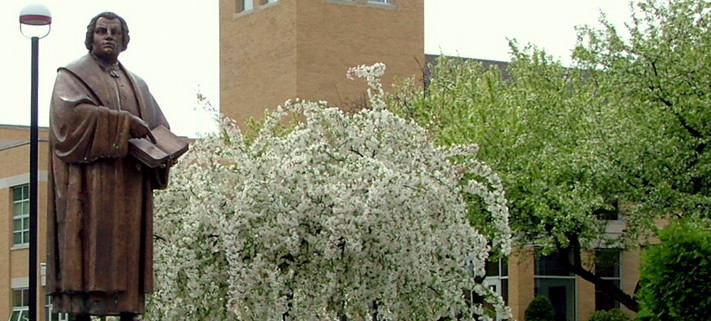The right kind of help
Mark G. Schroeder
Ever since the 1930s when Dale Carnegie’s book How to Win Friends and Influence People sold millions of copies, self-proclaimed experts have offered answers and solutions to just about any personal challenge or shortcoming. In the United States alone, the self-help industry that offers books, videos, seminars, and personal life coaching has grown into a $12 billion per year industry.
These “experts” promise that lives will be changed for the better if you only follow a few simple guidelines. Struggling with finances? The book Master the Game: 7 Simple Steps to Financial Freedom promises to make money problems a thing of the past. Unlucky in love? The 5 Love Languages: The Secret to Love that Lasts promises to help you. Having trouble keeping your house neat and clean? The Life-Changing Magic of Tidying Up: The Japanese Art of Decluttering and Organizing is sure to solve the problem. And don’t forget about all of the experts who, for a small sum, will be glad to tell you how your congregation can thrive and grow and how your church can reach those hard-to-figure-out millennials.
I have no doubt that these experts have at times offered common sense advice that people have found helpful. But I think it’s safe to say that just as many people who came looking for help ultimately went away disheartened, frustrated, and struggling.
If there’s one thing that we Christians know from personal experience it’s that we too are desperately in need of help. But our need is much more serious and dire than needing advice on how to improve our personalities or leadership skills or financial condition. Our need is for someone to help us in our dilemma of being absolutely lost in our own sinful condition, with no hope of self-improvement or self-saving. Martin Luther described us all when he said, “We are all beggars.” On our own, we have no inborn goodness, nothing that we can claim as deserving love or reward from a holy and righteous God. We, ultimately, have no hope.
We need help—and we know where to find it. How blessed we are to be able to say with the writer of Psalm 121: “I lift up my eyes to the mountains—where does my help come from? My help comes from the LORD, the Maker of heaven and earth” (vv. 1,2).
In those words we confess and proclaim that we sinners know that our help comes from only one place: from a gracious God who saw us in our great need. That help came from a God who had every right to turn his back on rebellious sons and daughters, but instead turned his face toward us in mercy and love. That help came not in the form of an army of reinforcements coming down from the mountains, but in a suffering servant who ascended another hill to offer himself as a sacrifice for our sins. That is the help we need, and that is the help that we have.
We still have challenges with life here and now. But we have his promise to help and sustain us: “The LORD will keep you from all harm— he will watch over your life; the LORD will watch over your coming and going both now and forevermore” (Psalm 121:7,8).
Need help? You know where to find it.
Mark Schroeder is president of WELS.
SUBMIT YOUR STORY
Do you have a manuscript, idea, or story from your own life you’d like to share for use in Forward in Christ or on wels.net? Use our online form to share it to our editorial office for consideration.
SUBSCRIBE TO FORWARD IN CHRIST
Get inspirational stories, spiritual help, and synod news from Forward in Christ every month. Print and digital subscriptions are available from Northwestern Publishing House.
Author: Mark G. Schroeder
Volume 104, Number 6
Issue: June 2017
Copyrighted by WELS Forward in Christ © 2021
Forward in Christ grants permission for any original article (not a reprint) to be printed for use in a WELS church, school, or organization, provided that it is distributed free and indicate Forward in Christ as the source. Images may not be reproduced except in the context of its article. Contact us


